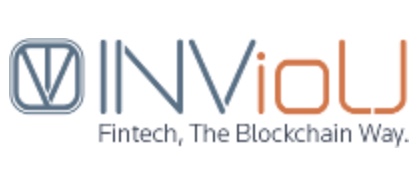CryptoOracle Co-Founder claims “decentralisation is a better way forward than the current state of market concentration.”
Lou Kerner on Israel’s blockchain scene, invoice financing and decentralisation
CryptoOracle’s co-founder, Lou Kerner, and the Israeli blockchain scene go back a long way. The American crypto expert is currently ranked among Medium’s “Top 50 most influential crypto bloggers” and has been an active supporter of Tel Aviv’s tech scene since 2013. With Israel’s huge investments in cybersecurity spearheading its reputation for innovation, there is a new wave of blockchain startups ready to export.
Israel has long been considered the world’s “Startup Nation.” Its tech-first culture gave it a head start when blockchain first emerged in 2013. According to the 2016 Deloitte report, it was home to an astonishing 38 blockchain startups, and in 2017, there was a 50% increase in tech companies.
By understanding the disruptive nature of blockchain, Israel has positioned itself as a global tech leader, with the ability to connect Lou Kerner and other investors to its startup ecosystem. Kerner’s crypto and blockchain expertise will in return help Tel Aviv businesses’ when it comes to exporting their ideas on the world stage.

Blockchain background
The blockchain is a cloud-based ledger made up of encrypted peer-to-peer “blocks”. It displays all the information involved in any single transaction, settlement or bond while allowing the identity of stakeholders to remain confidential.
The decentralised ledger is also used to record, store and transfer anything from medical records, mortgage transfers to invoice payments. Crucially, once a “block” is registered, it can no longer be deleted.
INVioU – a blockchain credit platform
Kerner’s arrival in Israel saw him team up with INVioU—a new blockchain credit finance platform offering invoice financing to small-medium businesses (SMB).
The Tel Aviv startup is looking to redefine the invoice finance industry through market decentralisation. By offering companies instant payment solutions on the blockchain, including proof of service and delivery terms, SMBs will receive much-needed transparency.
Speaking in Israel, Kerner told audiences how invoice financing could help businesses improve their future cash flow:
“Invoice financing is a popular method for businesses looking to increase their liquidity. The process involves nominating a finance company, who assume responsibility for the invoice collection and take a percentage of the overall amount. While the remaining figure is deducted as a “factoring fee” once the invoice clears.”
“Smart contract” factoring
INVioU offer businesses a faster invoice payment service as they can approve or reject applications in real time. So unlike in the past, where companies would wait weeks for a third party to verify their invoice requests, INVioU can inform businesses if they are eligible within minutes.
By using blockchain “smart contracts” to oversee agreements between participants, companies can build trust between customers and factors. Smart contracts will allow companies to liquidate invoices and sell them on a decentralised marketplace.
On the other side, factoring companies can audit and review an SMB’s performance (and their customers too) leading to greater efficiency and premium quality services. This process will ultimately create a more competitive market for all players.
Israeli blockchain companies challenging centralisation
Kerner recently expressed concern about the negative impact of the “big five” tech companies, and hopes that blockchain will challenge centralisation in future:
“Tel Aviv is a major crypto hub, and I passionately believe the tech ecosystems within this city and beyond, will help challenge the wealth and power concentration currently controlled by Facebook, Google, Apple, Amazon, and Netflix. In my view, decentralisation is a better way forward than the current state of market concentration we have right now.”
Following his decentralising thesis, Kerner spoke about data security concerns, an issue all too prevalent in today’s society:
“Weak data protection is an obvious downside of our centralised tech system. From our shopping preferences to our genome, every day private information is often given away for free to undesirable actors, with far-reaching social and economic implications.”
Indeed, the central premise of blockchain is to allow participants, who may not trust each other, to share and exchange services in a secure fashion. Blockchain companies can facilitate trust through their innovative decentralised software, which is extremely difficult to hack or manipulate.
INVioU is an excellent example of how trust and liquidity between stakeholders can improve by using blockchain software. Factoring will become more accessible to companies looking for cash flow for tasks they have already performed. Opening up new markets, factors in return, will audit customers and instantly purchase invoices without third party interference and time delays.
Israeli blockchain companies are emerging with innovative ideas all the time, and we can expect to see more tech disruption in 2019. With blockchain software incrementally eroding the market concentration of the tech giants, Kerner’s wish of a decentralised tech ecosystem is not too far off the mark.
INVioU offers their users invoice liquidity and the opportunity to get involved in the ongoing blockchain revolution. Be sure to become an early adopter now.























